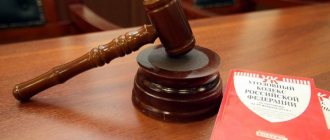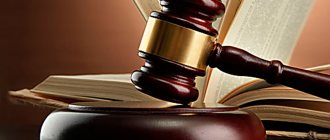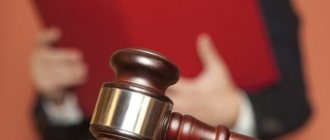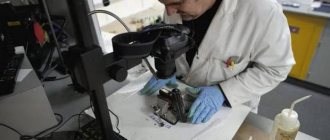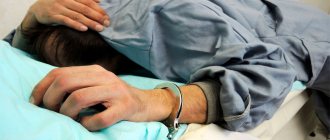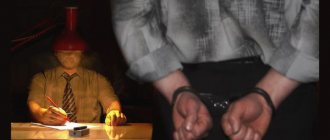The Institute of Rehabilitation (CCP, Chapter 18) is one of the most important criminal procedural institutions. It ensures the implementation of key guarantees for persons against whom prosecution was unjustifiably initiated or coercive measures were applied. The importance of rehabilitation cannot be overestimated. An entity that has suffered from the actions of law enforcement agencies has the opportunity to restore its reputation and receive compensation for damage. Let us consider the features of the implementation of the right to rehabilitation according to the Code of Criminal Procedure of the Russian Federation.
Normative base
The institution of rehabilitation is enshrined not only in national legislation, but also in international legal acts. Thus, Article 8 of the Declaration of Human Rights states that everyone has the right to restoration of violated rights enshrined in the Constitution or other law by competent national courts. This possibility is specified in the Basic Law. Article 53 of the Constitution enshrines a guarantee for compensation for damage resulting from illegal inactions/actions of government bodies or their employees.
Composition of legal relations for rehabilitation (diagram)
The Code of Criminal Procedure of the Russian Federation contains an exhaustive list of persons who have the right to restore rights in the event of their violation by government agencies and employees. It is established in Part 2 of Article 133 of the Code.
The right to rehabilitation according to the Criminal Procedure Code can be exercised by:
- defendant;
- suspect/accused;
- convicted;
- a citizen against whom compulsory medical measures were applied;
- persons unlawfully subjected to procedural coercive measures.
Topic 6
Resolution of the Constitutional Court of the Russian Federation of June 27, 2000 No. 11-P “In the case of verifying the constitutionality of the provisions of part one of Article 47 and part two of Article 51 of the Criminal Procedure Code of the RSFSR in connection with the complaint of citizen V. I. Maslov.”
Narizhny S.V.
Compensation for moral damage in criminal proceedings in Russia. St. Petersburg, 2001.
d) due to the existence of a final verdict on the same charge9. Compensation for property and moral damage during rehabilitation. Restoration of other rights of the rehabilitated person.
Name and analyze all the grounds for termination of criminal prosecution.
Defendants
These persons, including in the framework of private prosecution cases initiated by the inquiry officer with the permission of the prosecutor, investigator, head of the investigative unit, have the right to rehabilitation if an acquittal was made against him. Such an act is adopted in cases where the event of a crime has not been established, the non-involvement of a person in an act has been established, or in the absence of corpus delicti in the actions of the subject. According to Article 133 of the Code of Criminal Procedure of the Russian Federation, rehabilitation is also guaranteed for defendants who have been acquitted by a jury.
Restoration of rights is also carried out in the event of termination of prosecution due to the public prosecutor's refusal to charge. An official can exercise this right by virtue of the provisions of Part 7 of Article 246 of the Code of Criminal Procedure. Refusal of charges occurs if, during the proceedings, the state prosecutor comes to the conclusion that the evidence presented in court does not support the charges brought against the citizen. When refusing, the authorized person must give reasons for his or her convictions.
The concept of rehabilitation in criminal proceedings and the grounds for the emergence of the right to rehabilitation
Rehabilitation is a procedure for restoring the rights and freedoms of a person illegally or unreasonably subjected to criminal prosecution, and compensation for the harm caused to him (clause 34 of Article 5 of the Code of Criminal Procedure of the Russian Federation). At the stage of pre-trial and judicial proceedings, officials of procedural bodies may make mistakes that cause harm to individuals and legal entities, and therefore, the legislation of the Russian Federation provides for the restoration of the rights of citizens (legal entities) who were harmed during criminal prosecution, the application of measures procedural coercion or conviction. The intersectoral legal multi-stage institution of rehabilitation in criminal proceedings is a set of homogeneous legal norms that regulate: the grounds for the emergence and recognition of the right to rehabilitation; types of damage subject to compensation, including to legal entities; the procedure for appealing the decision to make payments and restoring other rights of the rehabilitated person. The specificity of compensation for harm to a rehabilitated person is that compensation is made by the state, that is, at the expense of the treasury of the Russian Federation, in full, regardless of the guilt of the inquiry body, investigator, prosecutor and court. The damage to the rehabilitated person is compensated only from the federal treasury. By virtue of Art. 1071 of the Civil Code, in cases where the damage caused is subject to compensation at the expense of the treasury of the Russian Federation, the Ministry of Finance of the Russian Federation acts on its behalf. In accordance with Part 3 of Art. 1081 of the Civil Code, in the event of compensation for damage caused by an official of the bodies of inquiry, preliminary investigation, prosecutor's office or court, the state has the right of recourse to this person if his guilt is established by a court verdict that has entered into legal force, that is, if the damage was caused as a result of committing crimes. According to Part 1 of Art. 133 of the Code of Criminal Procedure of the Russian Federation, the right to rehabilitation contains three components:
- the right to compensation for property damage;
- the right to eliminate the consequences of moral damage;
- the right to restoration of labor, pension, housing and other rights.
The law provides for unequal procedures for compensation for various types of damage and restoration of other rights (see Articles 135-139 of the Code of Criminal Procedure of the Russian Federation).
Criminal prosecution is a procedural activity carried out by the prosecution in order to expose a suspect accused of committing a crime (clause 55 of Article 5 of the Code of Criminal Procedure of the Russian Federation).
Subjects of rehabilitation, in accordance with Part 2, 2.1 and 3 of Art. 133 of the Code of Criminal Procedure of the Russian Federation are:
- A defendant who has been acquitted on any of the grounds specified in Parts 2 and 8 of Art. 302 of the Code of Criminal Procedure of the Russian Federation (for example, the event of a crime has not been established, the defendant is not involved in the commission of a crime, there are no signs of a crime in the defendant’s act).
- A defendant whose criminal prosecution has been terminated due to the abandonment of charges by a public or private prosecutor. During the trial, the public prosecutor has the right to withdraw charges in accordance with Part 7 of Art. 246 Code of Criminal Procedure of the Russian Federation. In criminal cases of private prosecution, the failure of the victim to appear without valid reasons entails the termination of the criminal case on the grounds provided for in paragraph 2 of Part 1 of Art. 24 of the Code of Criminal Procedure of the Russian Federation (Part 3 of Article 249 of the Code of Criminal Procedure of the Russian Federation). Termination of a criminal case at a court hearing occurs under paragraph 2 of Art. 254 Code of Criminal Procedure of the Russian Federation.
- A suspect or accused, the criminal prosecution against whom has been terminated: due to the absence of a crime (clause 1, part 1, article 24 of the Code of Criminal Procedure of the Russian Federation); for the absence of corpus delicti in the act (clause 2, part 1, article 24 of the Code of Criminal Procedure of the Russian Federation); in the absence of a statement from the victim in cases of private and private-public prosecution (clause 5, part 1, article 24 of the Code of Criminal Procedure of the Russian Federation); in the absence of the court's consent to initiate a criminal case or to involve as an accused a member of the Federation Council and a deputy of the State Duma, the Prosecutor General, a judge of the Constitutional Court, the Supreme Court, the Supreme Arbitration Court of the Russian Federation, a judge of a federal court of general jurisdiction and a federal arbitration court, and other judges, a deputy of a legislative (representative) body of state power of a subject of the Federation, an investigator, a lawyer, a prosecutor (clause 6, part 1, article 24 of the Code of Criminal Procedure of the Russian Federation); due to the non-involvement of the suspect or accused in the commission of a crime (clause 1, part 1, article 27 of the Code of Criminal Procedure of the Russian Federation); due to the existence of a final verdict against the suspect or accused on the same charge or a court ruling or a judge’s decision to terminate the criminal case on the same charge (clause 4, part 1, article 27 of the Code of Criminal Procedure of the Russian Federation); due to the presence in relation to the suspect or accused of an unreversed resolution of the inquiry body, investigator or prosecutor to terminate the criminal case on the same charge or to refuse to initiate a criminal case (clause 5, part 1, article 27 of the Code of Criminal Procedure of the Russian Federation); due to the refusal of the State Duma of the Federal Assembly of the Russian Federation to give consent to the deprivation of immunity of the President of the Russian Federation, who has ceased to exercise his powers, and (or) the refusal of the Federation Council to deprive the immunity of this person (Clause 6, Part 1, Article 27 of the Code of Criminal Procedure of the Russian Federation).
- Convict - in cases of complete or partial cancellation of a court conviction that has entered into legal force and termination of a criminal case due to his non-involvement in the commission of a crime (clause 1, part 1, article 27 of the Code of Criminal Procedure of the Russian Federation) or due to the absence of a crime (clause 1, part 1 Article 24 of the Code of Criminal Procedure of the Russian Federation); for the absence of corpus delicti in the act (clause 2, part 1, article 24 of the Code of Criminal Procedure of the Russian Federation); due to the expiration of the statute of limitations for criminal prosecution (clause 3, part 1, article 24 of the Code of Criminal Procedure of the Russian Federation); in connection with the death of a person, with the exception of cases when criminal proceedings are necessary for the rehabilitation of the deceased (clause 4, part 1, article 24 of the Code of Criminal Procedure of the Russian Federation); in the absence of a statement from the victim in cases of private and private-public prosecution (clause 5, part 1, article 24 of the Code of Criminal Procedure of the Russian Federation); due to the lack of court consent to initiate a criminal case or to involve as an accused a member of the Federation Council and a deputy of the State Duma, the Prosecutor General, a judge of the Constitutional Court, the Supreme Court, the Supreme Arbitration Court of the Russian Federation, a judge of a federal court of general jurisdiction and a federal arbitration court, others judges, deputy of the legislative (representative) body of state power of the subject of the Federation, investigator, lawyer, prosecutor (clause 6, part 1, article 24 of the Code of Criminal Procedure of the Russian Federation). To rehabilitate these persons, a “decision of the appellate court (sentence) made in accordance with clause 2, part 3 of Art. 367 of the Code of Criminal Procedure, the court of cassation (ruling), issued in accordance with paragraph 2 of part 1 of Art. 378 of the Code of Criminal Procedure of the Russian Federation or a supervisory court (ruling or resolution) issued in accordance with paragraph 2 of part 1 of Art. 408 of the Code of Criminal Procedure of the Russian Federation.”
- A person to whom compulsory medical measures were applied - in the event of the cancellation of an illegal or unfounded court order to apply this measure. Compulsory medical measures are provided for in Ch. 15 of the Criminal Code of the Russian Federation and 51 of the Code of Criminal Procedure of the Russian Federation.
- The person specified in paragraphs 1-4 of Part 2 of Art. 133 of the Code of Criminal Procedure of the Russian Federation, in criminal cases of private prosecution, if the criminal case was initiated in accordance with Part 4 of Art. 20 of the Code of Criminal Procedure of the Russian Federation, as well as those convicted in criminal cases of private prosecution, initiated by the court in accordance with Art. 318 of the Code of Criminal Procedure of the Russian Federation, in cases of complete or partial reversal of a court conviction and acquittal of a convicted person or termination of a criminal case or criminal prosecution on the grounds provided for in clauses 1, 2 and 5 of Part 1 of Art. 24 of the Code of Criminal Procedure of the Russian Federation and paragraphs 1, 4 and 5 of Part 1 of Art. 27 Code of Criminal Procedure of the Russian Federation.
- Any person who has been unlawfully subjected to procedural coercive measures in the course of criminal proceedings. In accordance with Art. 133 of the Code of Criminal Procedure of the Russian Federation, the grounds for the emergence of the right to rehabilitation, including the right to compensation for harm, are: a) criminal prosecution, which is a procedural activity carried out by the prosecution in order to expose a suspect accused of committing a crime (clause 55 of article 5 Code of Criminal Procedure of the Russian Federation); b) illegal application of procedural coercive measures to any person during criminal proceedings (Part 3 of Article 133 of the Code of Criminal Procedure of the Russian Federation).
Measures of procedural coercion are regulated by Section IV of the Code of Criminal Procedure of the Russian Federation, these include: detention of a suspect, preventive measures, other measures of procedural coercion (obligation to appear, arrest, temporary removal from office, seizure of property, monetary penalty). Taking into account the priority of human rights over the rights of the state (Articles 2 and 18 of the Constitution of the Russian Federation), judicial practice interprets the provisions of Part 3 of Art. 133 of the Code of Criminal Procedure of the Russian Federation is broad both in terms of the range of persons and in terms of types of coercive measures. In accordance with this norm, the right to compensation for harm is granted even to the accused (regardless of whether the results of his criminal prosecution are considered justified or unfounded), for example, when the preventive measure applied to him in the form of detention in connection with the reclassification of the crime for which this the preventive measure could not be applied. Despite the fact that in Ch. 4 of the Code of Criminal Procedure of the Russian Federation does not include among the coercive measures such coercive measures as a search of a home, seizure and other investigative actions carried out forcibly; harm caused by their illegal production is also subject to compensation. Moreover, when such harm is caused to “outsiders”, against whom criminal prosecution is not carried out.
The criminal procedural legislation (Part 4 of Article 133 of the Code of Criminal Procedure of the Russian Federation) provides that the right to rehabilitation is absent when the measures of procedural coercion applied to a person or the verdict of guilty are canceled or changed due to: a) the issuance of an amnesty act; b) expiration of the statute of limitations; c) not reaching the age at which criminal liability begins; d) retardation of a minor who has reached the age of criminal responsibility in mental development, not associated with a mental disorder, which did not allow him to fully understand the actual nature and social danger of his actions (inaction) and manage them at the time of committing the act provided for by criminal law; e) adoption of a law eliminating crime or punishability of an act, with the exception of cases of a court ruling provided for in paragraph 1 of Part 3 of Art. 125.1 Code of Criminal Procedure of the Russian Federation. It is important to emphasize that the right to compensation for harm arises not only in the case when actions were taken in relation to the rehabilitated person and decisions were made that were recognized as illegal or unfounded, but also in the event that the harm was caused as a result of actions that were legal and justified at the time of their execution, which , however, were associated with futile criminal prosecution.
Accused/suspects
These citizens, including in cases of private prosecution, are guaranteed rehabilitation under the Criminal Procedure Code if the prosecution is terminated due to the lack of:
- elements or events of a crime;
- statements from the victim, if the case can only be initiated if there is one;
- conclusions of the court on the presence of signs of illegal acts in the actions of the subjects listed in Article 448 (Part 1, clauses 1, 3, 4, 5, 9, 10);
- consent of the Federation Council, the State Duma, the judicial qualification board to initiate proceedings, involve in the status of an accused person endowed with immunity, deprivation of immunity of the President who has terminated his powers.
Accused/suspects may exercise the right to rehabilitation in the following cases:
- establishing their non-involvement in the crime;
- the presence of an unreversed verdict or ruling of the court, a resolution of the investigator, inquiry officer on the same charge to terminate the case or refuse to initiate it.
According to the Code of Criminal Procedure, rehabilitation for convicted persons is provided in the same cases as described above. In addition, it is guaranteed if:
- partial/complete cancellation of the indictment that came into force and termination of the case in connection with the establishment of non-involvement in the crime;
- expiration of deadlines;
- death of the convicted person, except in situations where proceedings continue to restore the rights of the deceased.
For persons to whom medical coercive measures have been applied, rehabilitation is provided for in the Code of Criminal Procedure in the event of the cancellation of the relevant decision due to proof of its groundlessness and illegality.
Court practice
Quite a wide practice has developed regarding the category of cases under consideration.
In particular:
- In 2016, the convicted U. filed a lawsuit with the court, in which he asked to recognize his rights regarding rehabilitation. In his appeal, he indicated that the materials of the case, as a result of the consideration of which he was convicted, were initiated under Article 295 of the Criminal Code. This suggests that the culprit committed an attack on the life of a prosecutor’s office employee. During the investigation, U. was charged as an accomplice and instigator of the murder of the specified person, that is, under Articles 33 and 105 of the Criminal Code. The investigator then decided to file a new charge. Thus, U. was accused of organizing the death of a prosecutor. The accused stated in the claim that he is subject to prosecution under criminal law against established norms. This is due to the fact that the case was not initiated under Article 105 of the Criminal Code and was not later terminated. In fact, he is responsible for another act. The court, after reviewing the case materials, indicated that initially the case was opened under one article of the code, however, after clarifying all the circumstances of the incident, they came to the conclusion that reclassification was necessary. That is why U. was brought a new charge. The panel that considered the complaint came to the conclusion that the court in the first instance did not violate the provisions of the law. As a result, the demands were denied.
- Citizen X. filed a claim with the district judicial authority. In this document, she reflected that she was acquitted by the verdict passed by the magistrate's court. The basis for this decision was the absence of elements of a criminal offense in her actions. Kh. put forward demands for the recovery of property damage from the private prosecutor. She reflected in the complaint the costs of a lawyer who helped protect the rights of the citizen. After considering the materials presented to the court, a decision was made to satisfy the demands put forward by this citizen. In favor of X., a sum of money was recovered from the person who carried out the private prosecution. The size is related to how much money X. spent on lawyer fees.
- The head of an organization called P. contacted the district judicial body. He demanded that the company be recognized as entitled to undergo rehabilitation. In addition, the leader put forward demands for his rehabilitation as a citizen. He pointed out that the basis for the emergence of this authority is a resolution indicating a refusal to initiate proceedings against the head of the enterprise. The judge, after considering the presented complaint and other materials, came to the conclusion that no criminal case was initiated, therefore no measures were taken against the director - in this regard, it is impossible to recognize his rights to rehabilitation. A decision was made to refuse to satisfy the demands put forward.
We can talk endlessly about judicial practice in this situation, since people often consider their rights to be violated and seek their restoration. However, judicial authorities do not always recognize a person’s rights regarding rehabilitation.
Partial compensation for damage
According to Article 133 of the Code of Criminal Procedure, rehabilitation does not exclude the possibility of compensating the subject for damage caused by unlawful actions of government agencies. Denial of compensation simply because a person has been found guilty of some other crime should be considered unreasonable.
As the Constitutional Court explains, in such cases, the courts, guided by the law, the principles of justice and the priority of freedoms and human rights, taking into account the specific circumstances of the case, can make a decision on compensation for harm to a subject acquitted in one case, but accused in another.
According to the norms of Chapter 18 of the Code of Criminal Procedure of the Russian Federation, rehabilitation can also take place when a citizen is acquitted of several crimes while simultaneously being recognized as involved in another act.
Exceptions
They are established in Art. 133 (part 4) of the Code of Criminal Procedure of the Russian Federation. Rehabilitation is not carried out if the cancellation of the indictment or procedural coercive measures was due to:
- adoption of an amnesty act;
- expiration of long-term deadlines;
- the person’s failure to reach the age of responsibility under the Criminal Code;
- decriminalization of crime.
These measures or a court ruling can be canceled in relation to a person who, although he has reached the appropriate age, was not able to adequately assess the danger and actual nature of his behavior and manage his actions at the time of the crime due to developmental delays not caused by mental disorders. . To such subjects, according to Art. 133 of the Code of Criminal Procedure of the Russian Federation, rehabilitation also does not apply.
Features of decriminalization
The ruling of the Constitutional Court No. 360-O of 2004 states that the provisions of Article 133 of the Code of Criminal Procedure on rehabilitation do not prevent the court from considering a pending case if, before the verdict is passed, a new law eliminates the punishability and criminality of the actions accused of the person. The court also has the right to decide the issue regarding the recognition of the subject’s right to rehabilitation or refusal to do so. These actions do not deprive a person of the right to effective protection and access to justice.
The Constitutional Court clarified that the number of citizens entitled to rehabilitation does not include the accused/suspected/convicted:
- whose illegal actions have been reclassified;
- from the charges in relation to which, qualifying features and erroneously imputed provisions of the Criminal Code were excluded;
- in respect of which other decisions were made, as a result of which the scope of the charge was reduced (an example would be the reclassification of the act from Article 105 to Part 4 of Part 111 of the Criminal Code).
Convicts whose sanctions have been changed downwards by a decision of a higher court do not have the right to rehabilitation.
If these subjects suffered damage, then issues relating to compensation are resolved according to the rules established by Chapter 18 of the Code of Criminal Procedure. Not only citizens, but also legal entities have the right to compensation.
Procedural issues
The judicial act or resolution of the inquirer/investigator must contain an indication of the right to rehabilitation. A notice is sent to the acquitted subject or citizen against whom the prosecution has been terminated. The notice explains the procedure for compensation for damage resulting from illegal actions/inactions of government agencies.
The notice also states:
- the name of the structure to which the rehabilitated citizen should contact;
- deadlines for filing a claim for damages;
- rules for considering applications for compensation for harm and restoring other violated rights;
- the procedure for challenging the decision to assign payments;
- rules for compensation for moral damage.
For persons in respect of whom it is provided for in Art. 133 of the Code of Criminal Procedure of the Russian Federation, rehabilitation and reinstatement at work is carried out according to the rules of Article 399 of the Code. If the claim for compensation for damage has not been satisfied, or the applicant does not agree with the decision, he can go to court in civil proceedings. The relevant provisions are enshrined in Article 138 of the Code of Criminal Procedure.
Appealing a court decision
A rehabilitated citizen has the right to appeal a court decision that did not satisfy him on the appointment of compensatory payments and the return of property assets confiscated from him through the cassation, appeal, or supervisory procedures.
Regarding some of the claims left by the court without consideration, the rehabilitated person may apply to the court using the procedure of civil proceedings.
Thus, the legal institution of rehabilitation in criminal proceedings is an important legal guarantee aimed at protecting the rights of citizens.
The rehabilitation process in criminal law allows persons who were illegally or unreasonably subjected to criminal prosecution to restore their property and non-property rights.
Nuances
As a general rule, the rehabilitated person can exercise the right to compensation for harm directly. However, the law provides for a special procedure for paying compensation in the event of a person’s death.
According to the norms, the right to receive compensation passes to the successors or dependents of the deceased. The specified persons are sent a corresponding notification within five days from the date of their application to the authorized structure that issued the decision on rehabilitation.
Information about entities interested in restoring the rights of the deceased is usually established as part of an investigation or during court proceedings.
Features of compensation
An entity rehabilitated by a resolution of an authorized government agency has the right to expect compensation for:
- earnings, pensions, other payments lost by a person due to persecution;
- valuables confiscated or converted into treasury income;
- procedural costs, fines imposed as part of enforcement proceedings;
- amounts paid for legal assistance provided;
- other costs associated with criminal proceedings.
The time limits within which an interested person can file a claim with the court are established by the Civil Code. They begin from the date of receipt of copies of documents specified in paragraph 1 of Article 134 of the Code of Criminal Procedure and notification. The application is submitted to the court that issued the decision (sentence, ruling) to terminate the prosecution (case) or to the authority at the place of residence of the rehabilitated citizen. If the restoration of rights is carried out by a higher court, the claims are sent to the first instance.
An application for compensation for harm can be submitted by the legal representative of the rehabilitated subject.
Amount of payments to the rehabilitated
According to the criminal procedural legislation, the compensation property payment to the rehabilitated person consists of the following components:
- salary, social benefits, pension or other financial resources that a citizen was deprived of as a result of illegal or legally unfounded criminal prosecution;
- fines and various procedural costs previously collected from the rehabilitated person in the execution of a court sentence;
- property assets of a rehabilitated citizen confiscated or converted into state income on the basis of court decisions;
- amounts paid by the rehabilitated person for providing him with legal assistance.
Features of the procedure
Within 1 month from the date of receipt of claims for compensation for material damage, the court determines its amount. A determination is made on the purpose of payments. Amounts are transferred to the rehabilitated person taking into account inflation.
A copy of the decision is sent or handed to the rehabilitated person. If he died, the document is transferred to the entities specified in Part 2 of Article 134 of the Code of Criminal Procedure.
The prosecutor is obliged to formally apologize to the citizen on behalf of the state for harm resulting from unjustified actions/inactions of law enforcement agencies. Recovery of moral damages is carried out according to the rules of civil proceedings.
Additionally
If information about the detention, detention, application of medical coercive measures, removal from office, conviction of a rehabilitated subject and other illegal actions carried out against him was published in print media, distributed on television, radio or in other media, at his request or at the request of his relatives (in case of death), by written order of the court, the prosecutor, the head of the investigative unit, the investigator/inquiry officer, within a month, the specified media must release a message about the rehabilitation of the person.
Also, within two weeks, written notices of decisions acquitting a citizen are sent to the place of his study, work or residence. These messages are sent at the request of the rehabilitated person or his relatives.
Citizens deprived of military, special, honorary titles, ranks, and state awards have the right to their restoration and return. Damage incurred by a legal entity as a result of unreasonable and illegal actions/inactions of law enforcement agencies is fully compensated by the state within the period specified in the Code of Criminal Procedure.
Rehabilitation methods
There are many examples in history when violated rights were subject to compensation. An obvious exception is fascism, which is due to the presence of a large number of persons whose rights have been violated. Rehabilitation measures are carried out by compensating a person for harm. It is both material and moral in nature. In addition, various rights of citizens that were infringed are restored.
According to these provisions, a variety of methods can be distinguished:
- Compensation for damage of a property nature occurs. In this case, the provisions of Article 135 of the Code of Criminal Procedure should be taken into account. This norm stipulates that wages and other types of payments must be reimbursed. This also includes the payment of benefits that a person has lost due to the issuance of an act that is unlawful in nature. All expenses of the victim must be taken into account.
- Moral damage is compensated. The person’s suffering, which is of a moral nature, is taken into account.
- Other rights of the injured party are also subject to restoration.
If we talk about whether wages were not received for the period when criminal prosecution was applied against a person, then it is worth paying attention to the calculation regarding the date of termination of such accruals. When deciding on reimbursements, the periods that must be reimbursed are taken into account. In this case, the circumstances of the case are reflected, which in each case have individual significance.
When it comes to determining the amounts required for payment, the legislator does not limit the provisions regarding the number of persons entitled to protect the injured party. This means that a person can contact several legal consultants at the same time and have several lawyers.
The legislator does not limit the provisions in force regarding which list of expenses should be reimbursed. This group, among other things, includes expenses that a person incurred in order to eliminate the consequences that resulted from a violation of his powers.
The amounts are determined taking into account the indexation of prices existing on the market. The amounts that were in effect at the time of the violation of human rights are subject to assessment. Damage caused to the organization is subject to compensation in accordance with similar provisions.
When indicating the need for compensation for harm of moral significance, it is understood as human suffering. They have a moral and physical orientation. It should be borne in mind that there is a distinction between the fight against the consequences of the harm caused and its compensation, expressed in financial terms. Article 136 of the Code of Criminal Procedure talks about eliminating these consequences.
These include:
- the prosecutor apologizes to the victim on behalf of the state;
- information indicating the use of rehabilitation measures is published in the media;
- notifications are sent about the application of standards to the person.
Regarding apologies, it can be noted that they are made for various categories of cases, regardless of whether there is a public or private-public accusation. The obligation to make an apology is enshrined in the decision of the judicial authority.
If rights that were violated due to the criminal prosecution of a person are subject to restoration, then they are restored in full. When deciding on the issue of length of service, which is reflected in the process of assigning pension contributions, its full rehabilitation is subject, that is, the entire period while the person was in custody or other measures were applied to him - is subject to inclusion in such length of service.
In addition, experts pay special attention to the fact that the term of serving a sentence that is imposed illegally is subject to inclusion in the length of service accrued in the specialty. If a person’s official housing was confiscated due to persecution, it must also be returned. Similar provisions apply to situations where the employment relationship with the victim is terminated. After the announcement of rehabilitation, the person must be reinstated in his position.

